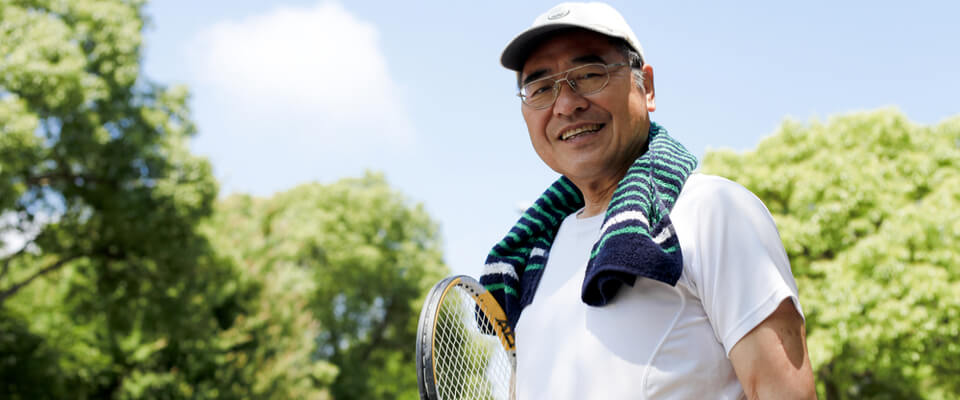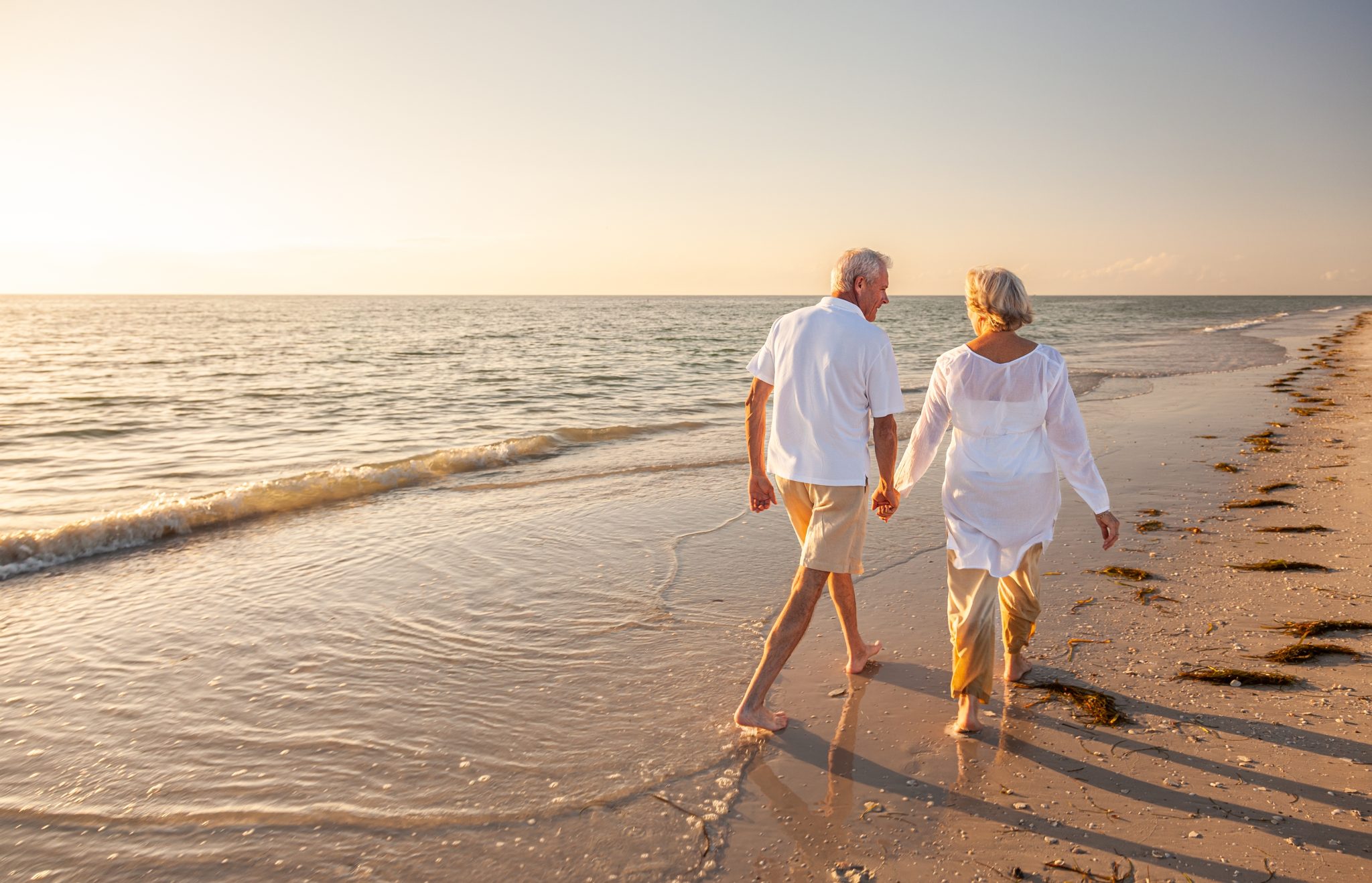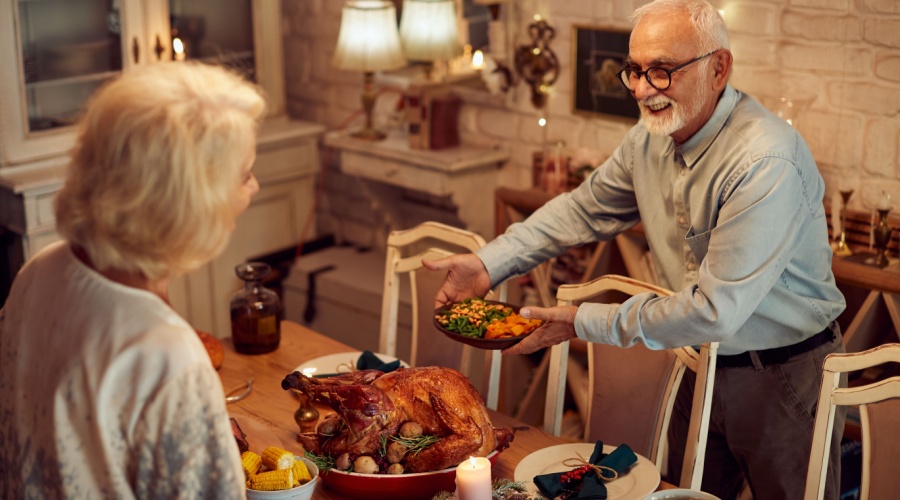Improving quality of life is important for health
Most people know that eating right and getting enough exercise are essential aspects of enjoying life at any age, especially in retirement. But beyond these healthy habits, recent studies in the UK and Sweden show that happiness and a positive outlook are also key components to longevity. Making sure you have a high quality of life is just as essential as looking after your heart and body.
One of the most important healthy living tips for Canadians is to stay connected to community, whether that is family and neighbours, or new friends that you can find by getting out of your comfort zone and doing something new. Going on a trip can be a great way to reinvigorate your lust for life, and there are many opportunities for adventure travel to supplement your hobbies at home. Staying active and feeling productive are two of the most crucial health tips for Canadians. Here we will provide some ideas about how you can increase your quality of life.
Ways to lead an active retired life
We often focus on the fact that being grateful for health should make you happy, but it’s also true that being happy can actually make you healthier. Who knew? While it can be an adjustment to have so much time on your hands after a lifetime of hard work, the advantage is that you have the opportunity to pursue many productive hobbies at home, or to finally take that trip you have always dreamed of.
Here are some health tips for Canadians:
- Top destinations for adventure travel for Canadians 55+: drawing on your life experience and wisdom, travelling at an older age can be one of life’s greatest pleasures. Much of active travel is directed at locations with temperate climates and incredible views. In Canada, there are many beautiful National Parks and walking trails, from the Wild Pacific trail on Vancouver Island, destinations in the Rockies like Banff and Lake Louise, Algonquin Park for canoeing and camping, to the gorgeous Cabot Trail in Cape Breton. Further abroad, there are many famous sites to be seen, from the peaks of the Inca Trail in Machu Picchu to the Great Wall of China. Many people also opt to spend around a week in a single European city to really explore and get to know it, with popular choices being London, Paris, Berlin, and Barcelona. If you’re looking to take an adventure, check out a list of great destinations here.
- Healthy habits lead to healthy living: there is an old saying that the way you spend your days is the way you spend your life. For active Canadians, the best sports are light, low-impact activities like swimming, pickleball, Tai Chi, and cycling. Adding any regular exercise (yes, even walking counts) into your daily routine can do wonders for your mood, not to mention keeping you flexible and mobile. It is also important to be aware of what you are putting into your body, so be sure to take a look at some nutritional health tips. Make sure to eat carbohydrate-rich foods like brown rice and sweet potatoes, protein-rich foods like salmon and beans, and at least five portions a day of fruits and vegetables that contain essential nutrients, vitamins, and fibre. Keep your brain active by trying to learn something new every day, read up on topics you don’t know much about, or learn a new language, musical instrument or skill. Even something like solving a daily crossword puzzle or sudoku helps to keep the mind engaged and may reduce the risk of dementia.
- Social involvement: staying connected to a community is always listed as one of the most important healthy living tips. Human beings are social creatures and we need to relate to each other in order to feel engaged and important. An ideal way to stay social is through regular meals and activities with family, and keeping up with friends by inviting them to visit, or travelling to visit them. It’s also a great idea to avail yourself of any invitations to parties and social events. Many active Canadians also get involved with a charity they are passionate about, a local church, or community organization.
- Pursue productive work: the best hobbies for Canadians at home are the ones which are productive, like cooking, knitting, sewing, and crafting. These are the familiar activities you can come back to after your adventure travel is over. Activities which focus on making things foster a sense of purpose, and selling or donating what you make helps to keep you connected socially as well.
Looking for more creative ways to spend your time in retirement?
- Dating in Retirement – How to Get Back out There
- How to Live Your Best Life: Travel Adventures in Retirement
- How Volunteering Can Be Just as Good for You as for the Community
Expenses to consider in maintaining a healthy retired life
Following health tips for Canadians 55+, like anything in life, will incur costs. However, it is important to remember that you can lead an active and healthy life on any budget, and that many options are available. Here are some of the most common expenses associated with improving your quality of life:
- Travel costs: Even though adventure travel is one of the most popular ways of improving quality of life, it does have costs. Health insurance, air fares, luxury hotels, and taxis can all add up. Estimates on the average price for a two-week trip abroad are over $5000 CDN. If you are leaving the country, you also have to take into consideration the cost of converting your spending money into Euros or other currencies. Here you can find out the costs of various destinations you may be interested in seeing.
- Health costs: While you cannot put a price tag on your health, keep in mind that most gyms or athletic centres charge a monthly membership fee as well as an initiation fee, and these fees combined can average over $800 a year in Canada. You may also face hidden costs in terms of making sure you have the correct footwear, clothing, and equipment for your exercise routine. Maintaining your health with treatments like acupuncture, chiropractors, and physiotherapy can reduce pain and increase your longevity, but these can also be expensive, often costing between $50 – $100 per session.
- Hobby and social costs: many productive hobbies, like sewing or knitting, do cost money for materials and supplies. If you are attending several weddings, graduation celebrations, baby showers or birthday parties in a single season, the money spent on gifts can add up quickly. Your creations could end up being a more economical (and thoughtful) gift option.
Your budget (which has now likely been reduced due to your lower income in retirement) should never stand in the way of living the active and fulfilled lifestyle you want to lead. If you’re like many Canadians and don’t have the savings or the cashflow to meet the needs of your active travel or hobby goals, the CHIP Reverse Mortgage® can help. With the CHIP Program, Canadian homeowners aged 55-years and older can access up to 55% of their property value in tax-free cash without having to move or sell and no monthly interest payments are required. The funds can be used however you please and it will not impact your CPP or OAS.
Don’t miss out on the chance to live the most active and happy life you can. Call us at 1-866-522-2447 to learn more about how much tax-free cash you could access with the CHIP Reverse Mortgage. Take the first step towards living the retirement you deserve!






























